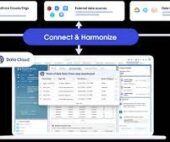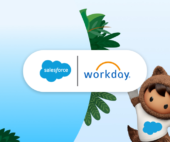Salesforce has placed significant emphasis on developing their new Artificial Intelligence engine, Einstein, in recent years. One standout feature that has garnered attention is Einstein Opportunity Scoring, which will become available for free following the Summer ’20 release. This feature is offered to all Salesforce customers.
So, what exactly is Einstein Opportunity Scoring? It’s a system that leverages data science and machine learning to score sales opportunities, enabling users to prioritize their actions effectively. Here’s how it works:
- AI-Driven Scoring: Each opportunity record is assigned a score from 1 to 99, generated by AI, assisting sales reps in identifying which opportunities are most likely to close.
- Visibility: The scores are visible on both the opportunity record layout and opportunity list views.
The advantages of opportunity scoring are manifold:
- Insightful Factors: Alongside the score, Einstein provides insights into the factors influencing the score, whether positive or negative, along with suggestions for improving it.
- Prioritization: It aids sales reps in determining which deals to focus on, preventing them from losing track of an opportunity’s status or missing out on support from sales managers.
- Efficiency: By streamlining the process of identifying promising opportunities, sales teams can work more efficiently and effectively.
So, how does Einstein Opportunity Scoring operate?
- Data Analysis: The system analyzes closed opportunities, considering both successful (closed-won) and unsuccessful (closed-lost) outcomes, to build a scoring model.
- Model Criteria: Criteria for the scoring model include details from opportunity records, account records, related activities, products, quotes, and price books.
- Model Refresh: The scoring model is refreshed every ten days, while opportunity scores are updated every few hours.
To implement Einstein Opportunity Scoring, certain prerequisites must be met:
- Data Requirements: A minimum of 200 “Closed Won” and 200 “Closed Lost” opportunities from the past two years, each with a lifespan of at least two days, is necessary.
- Standard Stage Field: Utilization of the standard Stage field on the opportunity object is required.
Building the prediction set involves defining positive and negative examples based on various criteria such as past outcomes, opportunity progress, and account activity. Implementation entails setting up the prediction using the Einstein Prediction Builder, defining the segment, specifying prediction outcomes, and selecting relevant fields.
After deployment, users can monitor the prediction set status and review the predictions to ensure they align with business objectives. Over time, real-life data can be analyzed to assess the accuracy and effectiveness of the predictions.

To enhance opportunity scores, users are advised to maintain accurate data, progress opportunities through stages promptly, and ensure completeness of opportunity records. Access to Einstein Opportunity Scoring is included in the Sales Cloud Einstein product suite at no additional cost, accessible through the Sales Cloud Einstein For Everyone permission set.
By leveraging Einstein Opportunity Scoring, Salesforce customers can optimize their sales processes, improve efficiency, and make more informed decisions to drive business success.













